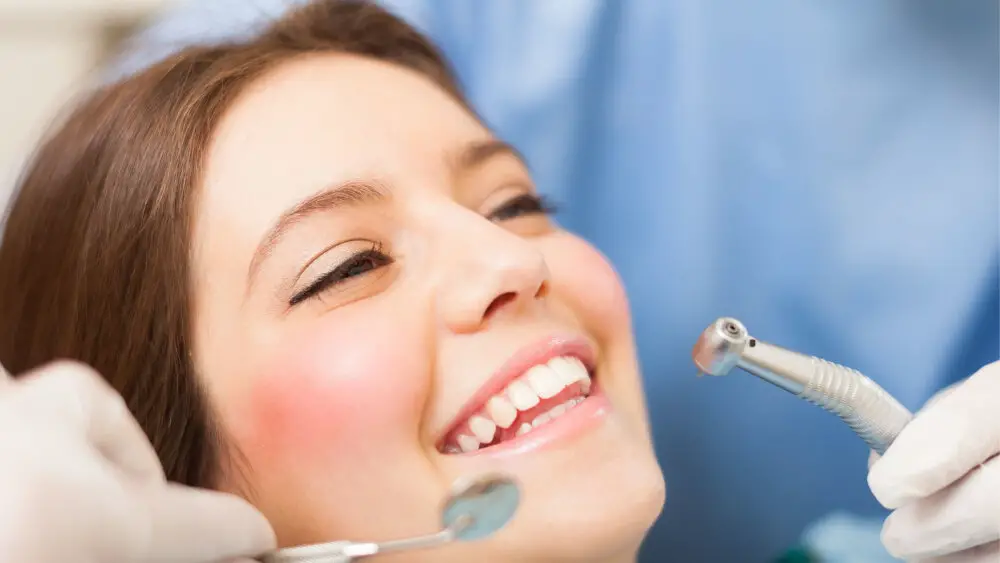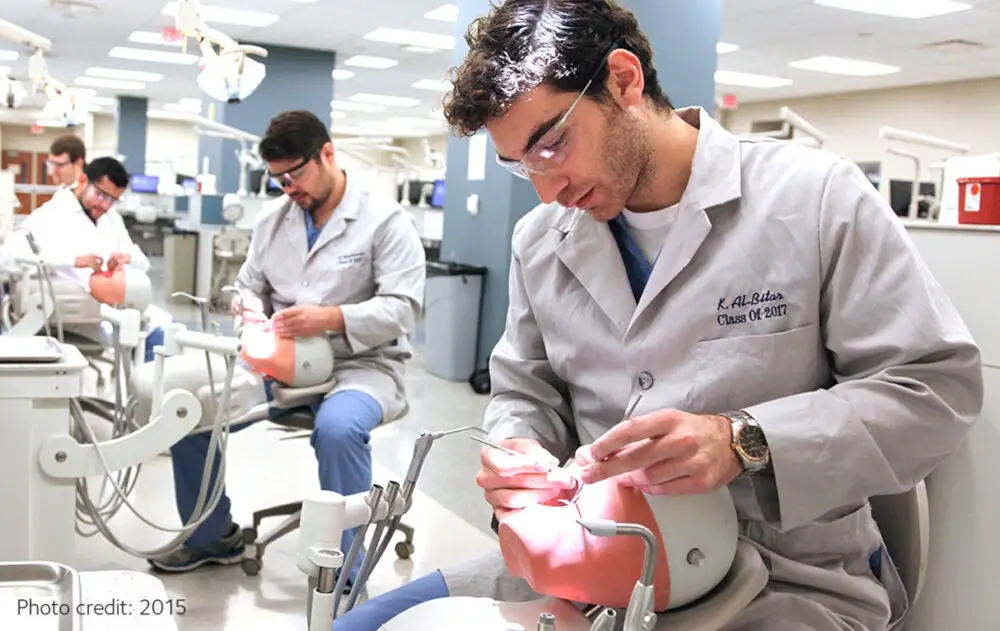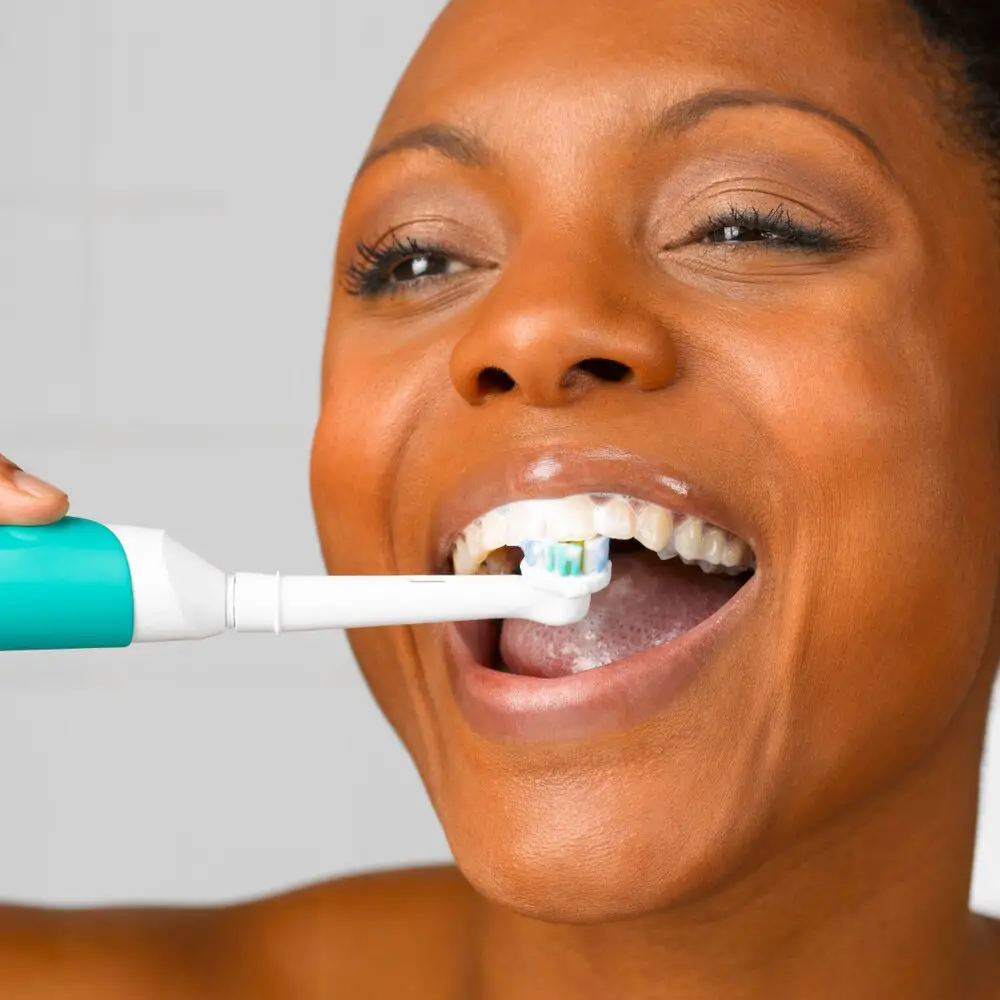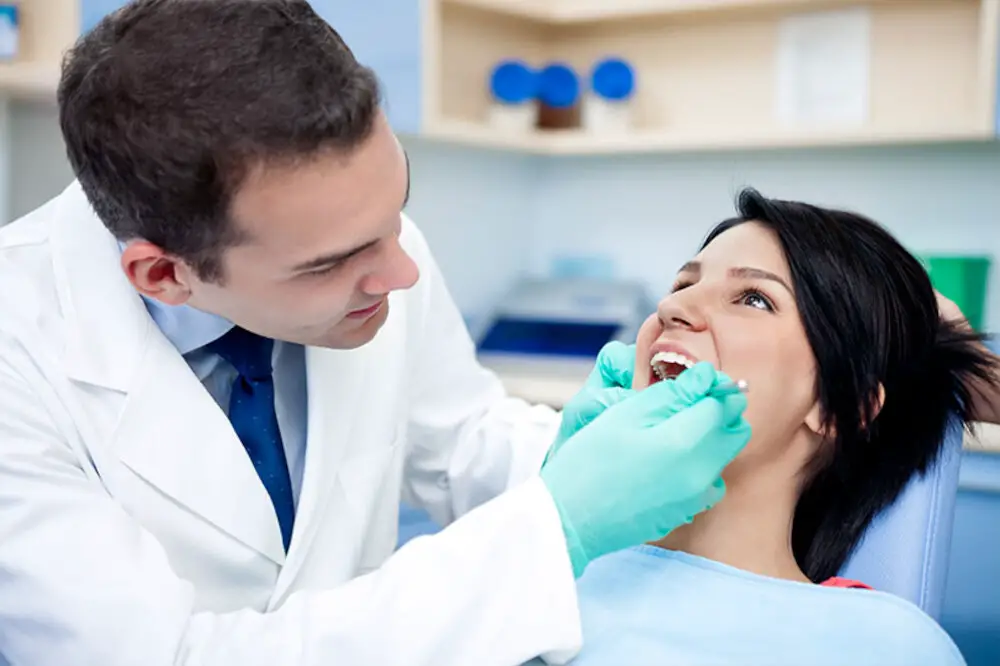Quick Relief: How to Alleviate Sore Throat After Wisdom Teeth Extraction

If you’ve recently had your wisdom teeth removed, you’re probably aware of the discomforts that come with the procedure. Sore throat is one of the most common symptoms after wisdom teeth extraction, and it can make eating, drinking, and speaking difficult. Fortunately, there are several quick relief measures you can take to alleviate the pain and discomfort associated with a sore throat after wisdom teeth extraction. Sore throat is a common side effect of wisdom teeth extraction, especially if the surgery involves the removal of lower wisdom teeth. The soreness can be caused by a variety of factors, including the swelling of the surrounding tissues, irritation from the surgical instruments, and the accumulation of bacteria in the mouth. While the soreness can be uncomfortable, it’s a natural part of the healing process, and with the right care and treatment, it can be managed effectively. In this article, we’ll explore some of the most effective ways to alleviate sore throat after wisdom teeth extraction and help you get back to feeling like yourself again.
After the extraction of wisdom teeth, it is common to experience some discomfort in the surrounding areas. This discomfort can manifest in various ways, including pain, swelling, and soreness. The pain may be a dull ache or a sharp sensation, and it can radiate to the jaw, ear, or neck. Swelling can occur in the cheeks or the area around the extraction site, and it may cause difficulty opening the mouth fully. Soreness can make it uncomfortable to eat, drink, or speak, and it can last for several days. These symptoms typically arise due to the body’s natural healing process, as it attempts to repair the tissue that has been damaged during the extraction.
Managing a sore throat after a wisdom teeth extraction procedure is crucial for a speedy recovery. A sore throat can cause discomfort and pain, making it difficult to eat, drink, and speak. Proper management of a sore throat involves taking prescribed pain medication, using ice packs to reduce swelling, and staying hydrated by drinking plenty of fluids. It is important to avoid smoking, alcohol, and hot or spicy foods as they can aggravate the sore throat. Additionally, gargling with salt water and using throat lozenges can provide relief and help soothe the throat. Neglecting to manage a sore throat can lead to further complications such as infection, prolonging the recovery process. Therefore, taking care of a sore throat is essential for a smooth and comfortable recovery.
Understanding the Cause

Understanding the cause of a sore throat after wisdom teeth extraction is crucial in relieving the pain and discomfort. The pain and inflammation occur due to the removal of the wisdom teeth, which can cause trauma to the surrounding tissues. As a result, the body’s natural response is to create inflammation and swelling, leading to a sore throat. Additionally, the extraction process can cause irritation and dryness in the throat, leading to a feeling of discomfort and pain. Other factors that can contribute to a sore throat after wisdom teeth extraction include the use of a breathing tube during the surgery, which can cause irritation and inflammation in the throat. Additionally, antibiotics, painkillers, and other medications used during the recovery period can also cause dryness and irritation, leading to a sore throat. Understanding the cause of a sore throat after wisdom teeth extraction can help individuals take the necessary steps to alleviate the pain and discomfort, such as drinking plenty of fluids, using a humidifier, and avoiding spicy or acidic foods.
A sore throat after wisdom teeth extraction is a common occurrence due to the proximity of the wisdom teeth to the throat and the trauma caused during the procedure. The extraction process can cause inflammation and swelling in the surrounding tissues, including the throat. Additionally, the use of anesthesia and the breathing tube during the procedure can also irritate the throat, leading to discomfort and soreness. Bacteria from the mouth can also enter the throat during the extraction, leading to infection and further aggravating the soreness. Proper aftercare and medication can help alleviate the discomfort and promote healing.
Inflammation and irritation of the throat are common symptoms after wisdom teeth extraction. The removal of wisdom teeth can cause trauma to the surrounding tissues, leading to swelling and soreness in the throat area. Additionally, the procedure can cause a disruption in the oral microbiome, leading to an overgrowth of harmful bacteria and an increase in inflammation. These symptoms can be exacerbated by smoking, poor oral hygiene, and certain foods and drinks. To alleviate sore throat after wisdom teeth extraction, it is important to reduce inflammation and irritation by avoiding irritants, staying hydrated, and using pain relievers and anti-inflammatory medications as directed by a healthcare provider.
Tips for Quick Relief

Sore throat after wisdom teeth extraction can be an uncomfortable and painful experience. Luckily, there are several tips you can follow for quick relief. One of the most effective ways to alleviate sore throat pain is to drink plenty of fluids. Water, fruit juice, and herbal tea can help keep your throat moist and reduce inflammation. Avoid drinking hot beverages or alcohol, as they can irritate the throat further. Another way to find quick relief is to use over-the-counter pain medications such as acetaminophen or ibuprofen. These medications can help reduce pain and inflammation, but be sure to follow the recommended dosage instructions carefully. Additionally, using a warm saltwater rinse can help soothe the throat and promote healing. Mix a teaspoon of salt in a glass of warm water and swish it around in your mouth for 30 seconds before spitting it out. These simple tips can help alleviate sore throat pain and promote a quicker recovery after wisdom teeth extraction.
Gargling with saltwater or mouthwash is a simple yet effective way to alleviate sore throat after wisdom teeth extraction. Saltwater is a natural antiseptic that helps to reduce inflammation and kill bacteria in the mouth. It works by drawing out excess fluid from the inflamed tissues and speeding up the healing process. On the other hand, mouthwash contains antimicrobial agents that can kill harmful bacteria and reduce inflammation in the mouth. Both remedies can provide quick relief and are easy to use. However, it’s important to follow the instructions carefully and not to overdo it, as excessive use of saltwater or mouthwash can lead to dry mouth and other dental problems.
When it comes to alleviating a sore throat after wisdom teeth extraction, drinking cold or lukewarm liquids can provide much-needed relief. Cold liquids, such as water or iced tea, can help reduce inflammation and numb the area, while lukewarm liquids, like warm tea or broth, can provide a soothing effect. However, it is important to avoid hot liquids or drinks that are too cold, as they can further irritate the throat or cause discomfort. Additionally, drinking plenty of fluids can help keep the mouth hydrated and promote healing.
After a wisdom tooth extraction, the dry and cool air can irritate the already sensitive tissues in the mouth and throat, leading to discomfort and pain. Using a humidifier can help alleviate these symptoms by adding moisture to the air, keeping the mouth and throat moist, and reducing irritation. A humidifier can also help loosen mucus and soothe a dry cough, providing relief to those who may be experiencing post-operative congestion. It is important to keep the humidifier clean and properly maintained to prevent the growth of bacteria and mold, which can worsen symptoms and lead to further health problems. Overall, utilizing a humidifier can be a simple and effective way to alleviate discomfort and promote healing after wisdom tooth extraction.
After wisdom teeth extraction, the throat can become extremely sensitive and sore. To alleviate this discomfort, it is important to avoid eating spicy or acidic foods that can further irritate the throat. Spicy foods, such as hot sauce and peppers, can cause a burning sensation that will only make the soreness worse. Acidic foods, such as citrus fruits and tomatoes, can also be painful to swallow and may cause further irritation to the throat. It is best to stick to soft, bland foods such as mashed potatoes, yogurt, and scrambled eggs while the throat heals. Additionally, drinking plenty of water and warm tea with honey can help soothe the throat and promote healing.
Home Remedies

Home remedies are simple and effective ways to alleviate sore throat after wisdom teeth extraction. These remedies are easy to prepare and can be found in your pantry or local store. Gargling with salt water is a popular home remedy that can help reduce pain and inflammation. Simply mix a teaspoon of salt with warm water and gargle for a few minutes. This will not only soothe the sore throat but also reduce the risk of infection. Another home remedy is to drink warm liquids such as tea or soup. Warm liquids will help to soothe the soreness in your throat and also provide hydration to your body. In addition to the above remedies, you can also try using a cold compress or ice pack on your cheeks. This will help to reduce swelling and inflammation, which can contribute to the pain in your throat. You can also try using honey, which is a natural antibacterial and anti-inflammatory agent. Simply mix a teaspoon of honey with warm water and drink it. This will help to reduce inflammation and provide relief to your sore throat. These home remedies are easy to prepare and can provide quick relief for sore throat after wisdom teeth extraction.
One of the most effective and natural ways to alleviate a sore throat after wisdom teeth extraction is by sipping on warm tea with honey. The warm temperature of the tea helps to soothe the throat and reduce inflammation, while the honey provides a coating effect that helps to protect the throat from further irritation. The natural antibacterial properties of honey also help to fight infection and promote healing. Not only is this remedy easy to make, but it’s also delicious and comforting, making it the perfect solution for those who are looking for a quick and effective way to ease their discomfort.
One simple yet effective way to alleviate swelling in the neck area after wisdom teeth extraction is by applying a warm compress. A warm compress can help increase blood flow to the affected area, which can promote healing and reduce inflammation. To apply a warm compress, soak a clean cloth in warm water and wring out the excess. Then, gently place the warm cloth on the affected area for 10-15 minutes at a time, taking breaks in between as needed. Remember not to use hot water or apply too much pressure, as this can further irritate the affected area. By incorporating this simple technique into your post-extraction care routine, you can help alleviate discomfort and promote a speedy recovery.
Using over-the-counter pain relief medication is one of the most common ways to alleviate sore throat after wisdom teeth extraction. Pain relievers like ibuprofen and acetaminophen are readily available at pharmacies and supermarkets and can provide quick relief from discomfort and pain. These medications work by reducing inflammation and blocking pain signals in the body. However, it is important to follow the recommended dosage and not exceed the maximum daily amount to avoid potential health risks. Additionally, it is always best to consult with a healthcare professional before taking any medication, especially if you have underlying medical conditions or are taking other medications.
After having your wisdom teeth extracted, it’s crucial to choose the right foods to eat. Consuming soft foods that are easy to swallow can help alleviate the soreness of your throat. These foods include mashed potatoes, soup, and smoothies. Opting for these options will also prevent any food particles from getting stuck in the extraction site, which can cause potential infection and discomfort. Furthermore, it’s essential to avoid spicy and acidic foods, as they can irritate the wound and prolong the healing process. Choosing the right foods can make a big difference in your recovery, and it’s always best to consult with your dentist or oral surgeon for specific recommendations.
When to Seek Medical Attention

After a wisdom teeth extraction, it is normal to experience some discomfort and soreness. However, there are certain situations where seeking medical attention is necessary. If you experience severe pain that is not alleviated by over-the-counter pain medication, or if you develop a fever and/or chills, it is imperative to seek medical attention right away. These symptoms could indicate an infection, which can be a serious complication following oral surgery. Additionally, if you notice excessive bleeding or swelling that is not improving with home remedies, it is important to contact your dentist or oral surgeon. In some cases, bleeding and swelling can be a sign of a more serious issue such as a blood clot or dry socket. It is also important to seek medical attention if you are experiencing difficulty breathing or swallowing. These symptoms could indicate a rare but serious complication known as an airway obstruction. If you experience these symptoms, it is important to seek medical attention immediately. Furthermore, if you notice any unusual discharge or drainage from your extraction site, it could indicate an infection or other complication. It is important to contact your dentist or oral surgeon if you notice any of these symptoms, as prompt treatment can prevent further complications and ensure a smooth recovery.
If you’ve recently had your wisdom teeth extracted and are experiencing a sore throat, it’s important to monitor the symptoms to ensure they are improving and not getting worse. Signs that your sore throat is not improving could include persistent pain or discomfort, difficulty swallowing, increased redness or swelling in the throat, or the development of white patches on the tonsils. If you notice any of these symptoms, it’s important to contact your dentist or healthcare provider for further evaluation and treatment. Additionally, if you experience a fever or chills, this could be a sign of an infection and requires prompt medical attention. Overall, paying close attention to your symptoms and seeking medical care when necessary can help ensure a speedy recovery and alleviate discomfort after wisdom teeth extraction.
If you have recently had wisdom teeth extracted, it is important to pay attention to any unusual symptoms that may arise. While some discomfort and pain is normal, there are certain signs that indicate you should call your dentist or oral surgeon immediately. If you experience excessive bleeding that does not stop after applying pressure, severe pain that is not relieved by over-the-counter medications, swelling that worsens after a few days, or signs of infection like fever or pus discharge, seek medical attention right away. Ignoring these symptoms can lead to further complications and delay the healing process, so it is important to act quickly and seek professional help when necessary.
Managing a sore throat after wisdom teeth extraction is crucial for a speedy recovery. The removal of wisdom teeth often causes swelling and pain in the throat due to the proximity of the surgical site to the tonsils and throat muscles. If left unmanaged, the sore throat can lead to discomfort and difficulty in swallowing, which can further delay the healing process. It is essential to follow post-operative instructions provided by the dentist, such as resting, taking medication, and maintaining good oral hygiene. Additionally, gargling saltwater and consuming soft, cold foods can help alleviate the soreness and inflammation in the throat. By managing a sore throat after wisdom teeth extraction, patients can minimize discomfort and promote a faster recovery.
If you are experiencing sore throat after wisdom teeth extraction, it’s important to try the suggested remedies to alleviate the discomfort. These remedies can include warm salt water gargles, over-the-counter pain medications, and staying hydrated with plenty of water. However, if the sore throat persists for more than a few days or is accompanied by other symptoms such as fever or difficulty swallowing, it’s important to seek medical attention. Your dentist or oral surgeon can examine the extraction site and determine if there is an infection or other complication that requires treatment. Don’t hesitate to reach out for help if you need it – taking care of your oral health is essential for your overall wellbeing.
Conclusion

In conclusion, dealing with a sore throat after wisdom teeth extraction can be uncomfortable, but there are several quick and effective ways to alleviate the pain. From using cold compresses to drinking warm tea with honey, there are many natural remedies that can provide relief. However, it’s important to follow your dentist’s post-operative instructions and take any prescribed medications as directed. With patience and proper care, your sore throat will soon subside, and you’ll be on your way to a speedy recovery.







